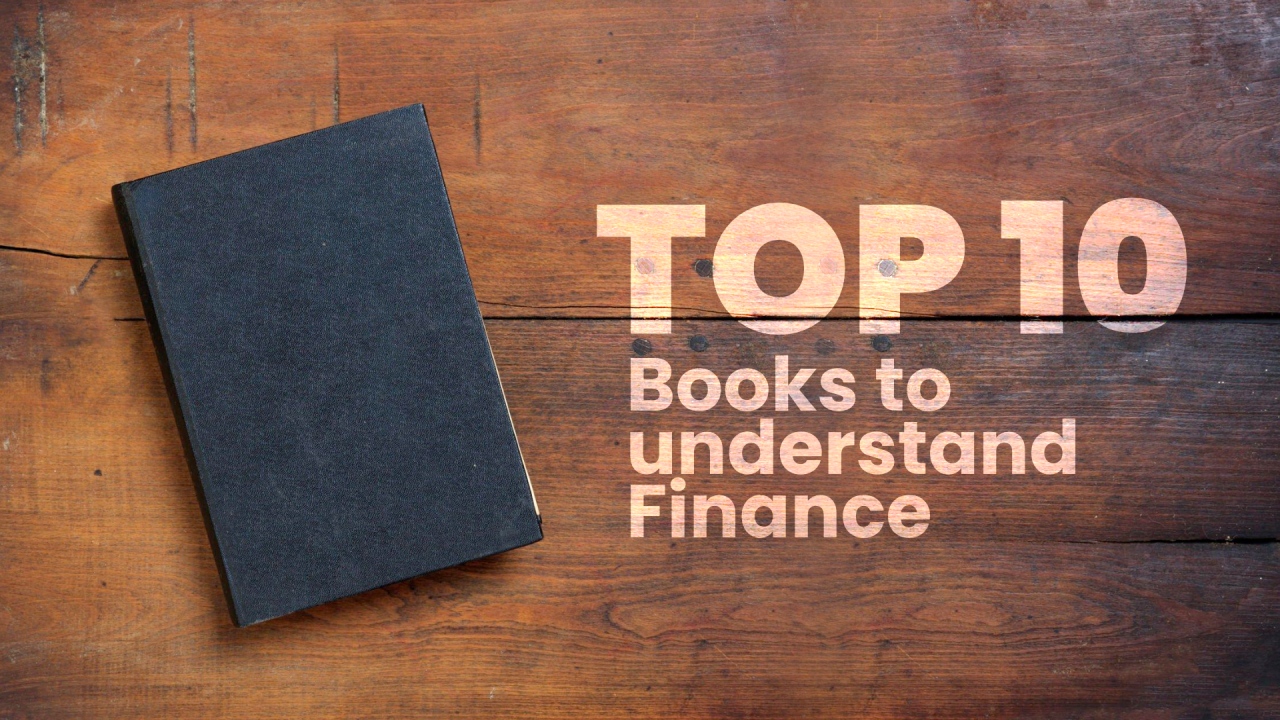Finance literature has recently seen a surge in interest and popularity. According to market research, sales of business and economics print books reached a 10-year high in 2023, accounting for a quarter of all nonfiction unit volume, a 10% increase from 2021. Business books have become the second most popular category in print publishing, following religious books. This vast and intricate genre encompasses over 100 categories and more than 200 subcategories.
In light of this wealth of financial literature, we aim to assist you in navigating this extensive landscape by curating a list of the best books available. These selections cover a wide range of topics, including biographies, money management and investment strategies, cryptocurrency, economic policies, financial scandals, decision-making in the stock market, and negotiation skills. Authored by experts from diverse backgrounds, these books provide comprehensive insights into the economy, particularly in these complex and high-risk times, helping readers make more informed financial decisions.
1. “The Total Money Makeover” by Dave Ramsey
Dave Ramsey’s “The Total Money Makeover” is a self-help book filled with real-life success stories of individuals who followed Dave’s step-by-step approach to financial freedom. This book offers inspiring advice, practical suggestions, and invaluable assistance in gaining complete financial control. It addresses the common challenges of reluctance and lack of support for necessary lifestyle changes, making it a transformative resource for reshaping financial goals and reaping the rewards of financial discipline.
2. “I Will Teach You To Be Rich” by Ramit Sethi
In “I Will Teach You to Be Rich,” Ramit Sethi, a personal finance expert, presents a six-week plan for achieving your own “rich life.” The book guides readers on how to strategically utilize credit cards to maximize rewards, open high-yield savings accounts to accrue interest, and automate accounts for effortless monthly savings. This highly actionable and easy-to-read book swiftly translates theory into tangible financial gains, enabling readers to establish wealth-creation strategies and financial systems.
3. “Rich Dad Poor Dad” by Robert Kiyosaki
“Rich Dad Poor Dad” is a comprehensive exploration of personal finance, framed as a tale of two fathers: one well-educated but financially struggling, and the other a school dropout who amasses wealth. Kiyosaki imparts crucial financial lessons by highlighting how adopting the mindset of the successful dropout father can lead to financial prosperity.
4. “The Barefoot Investor” by Scott Pape
Australian author Scott Pape, in “The Barefoot Investor,” offers practical guidance on managing finances in everyday life. This book is particularly suitable for those new to financial management and provides essential advice such as setting aside dedicated time for financial planning, utilizing multiple bank accounts for optimal money management, and effectively managing and paying off debts.
5. “The Motley Fool: You Have More Than You Think” by David Gardner and Tom Gardner
“The Motley Fool” takes a playful approach to help readers strike a balance between lifestyle aspirations and financial realities. The book starts by emphasizing the importance of saving money and paying off credit card debt, then delves into fundamental investment concepts. It dispels myths, such as the idea that mutual funds consistently outperform the market average, offering readers valuable insights into prudent financial planning.
6. “Money” by Tony Robbins
“Money” by Tony Robbins draws from interviews with over 50 financial professionals to comprehensively instruct readers on achieving financial freedom. The book addresses a topic often considered taboo: Money. Robbins provides actionable steps for financial success, making it accessible to readers from all backgrounds.
7. “Broke Millennial: Stop Scraping By and Get Your Financial Life Together” by Erin Lowry
Erin Lowry’s “Broke Millennial” offers a conversational guide to millennials seeking to take control of their personal finances. The book addresses critical financial issues faced by this generation, from understanding their relationship with money to managing student debt and having financial conversations with partners. Key takeaways include the importance of taking calculated risks, treating oneself responsibly with earnings, and diversifying investments using a bucket system.
8. “The Little Book that Beats the Market” by Joel Greenblatt
Considered one of the best finance books available, “The Little Book that Beats the Market” explores stock market investing and how investors can outperform the market. Greenblatt presents data from recent financial crises, shares insights from the field, and discusses fundamental concepts of effective stock market investing. The book also introduces Greenblatt’s tried-and-true formula, offering readers inspiration to evaluate equities based on earning yield and return, rank and combine these elements, and maintain patience with the results.
9. “Think and Grow Rich” by Napoleon Hill
“Think and Grow Rich” centers on personal growth and its role in achieving success. This book underscores the power of mental visualization in achieving one’s goals, emphasizing the importance of inner focus in achieving objectives. Key principles include believing in one’s thoughts, nurturing creative and synthetic imagination, and leveraging the subconscious mind to shape destiny.
10. “What To Do With Your Money When Crisis Hits: A Survival Guide” by Michelle Singletary
Michelle Singletary’s personal finance guide offers a flexible approach to managing money in times of crisis. Whether read cover to cover or by focusing on specific themes, the book provides authoritative, straightforward, and actionable answers. Singletary advises readers on financial triage, prioritizing essential expenses like food, and negotiating payment plans with remaining creditors. Her book caters to a broad audience, offering insights for high-income individuals living beyond their means, financial novices, and everyone in between. It also provides a valuable resource section listing organizations, businesses, and government authorities for further information and consumer remedies.
Conclusion
Effective financial management is crucial as it forms the foundation for future success. The highlighted financial literacy books offer essential and straightforward guidance that newcomers can readily embrace. Through real-life examples and insights, these books inspire readers to reshape their financial practices and embark on a path toward financial freedom.




